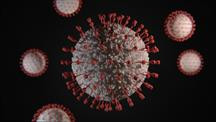Debates surrounding the origins of the novel coronavirus have led to various hypotheses, including the possibility of a leak from a Chinese lab or the virus originating from wildlife at Wuhan's wet market. Now, a Chinese scientist has presented a new theory that the virus may have originated from humans, refuting previous claims that Wuhan was the source of the outbreak.
Beijing University of Chemical Technology scientist Tong Yigang stated that viral samples collected from the Huanan Seafood Market in Wuhan were "almost identical" to those found in coronavirus-infected patients. According to Tong, this likely indicates that the virus originated from humans.
Tong's claims were made during a Chinese State Council press conference, where he explained the methodology behind his conclusion. From January to March 2020, scientists collected over 1,300 environmental and frozen animal samples from Wuhan's infamous market. Three strains of the virus were isolated from these samples, and subsequent analysis suggested the virus may have originated from humans, as reported by CNN.
Chinese scientists have also refuted recent claims that raccoon dogs were the source of the virus. These assertions come amid ongoing criticism of China's lack of cooperation with the World Health Organization (WHO) in their investigation to uncover the origins of the outbreak.
The WHO has been searching for the source of the outbreak since the early days of the pandemic. Last year, they requested new studies, including audits of labs located near Wuhan. However, a recent report in the journal Nature claims that the investigation has been halted.
Dr. Maria Van Kerkhove, an epidemiologist at the WHO, expressed frustration with the political obstacles impeding the understanding of the virus's origins. However, a WHO spokesperson later clarified that the investigation has not been abandoned, but noted their frustration with the Chinese authorities' lack of transparency when it comes to sharing data.
WHO chief Tedros Adhanom Ghebreyesus has publicly urged China to provide data from the early stages of the pandemic, as the health agency believes China possesses more information than it shares. "Without full access to the information that China has... all hypotheses are on the table," Ghebreyesus said in Geneva.
The uncertainty surrounding the virus's origin has led to heated exchanges between U.S. and Chinese leaders. Former U.S. President Donald Trump openly claimed that the virus came from a lab in Wuhan, a theory that was later dismissed by the World Health Organization.





